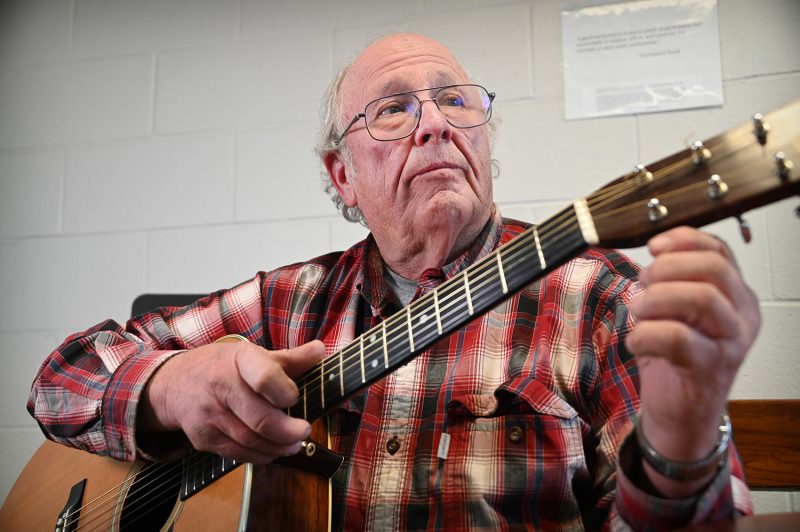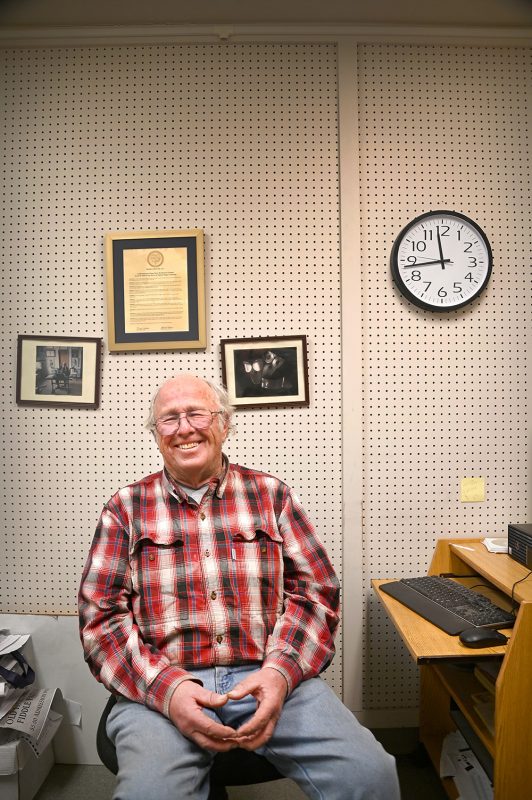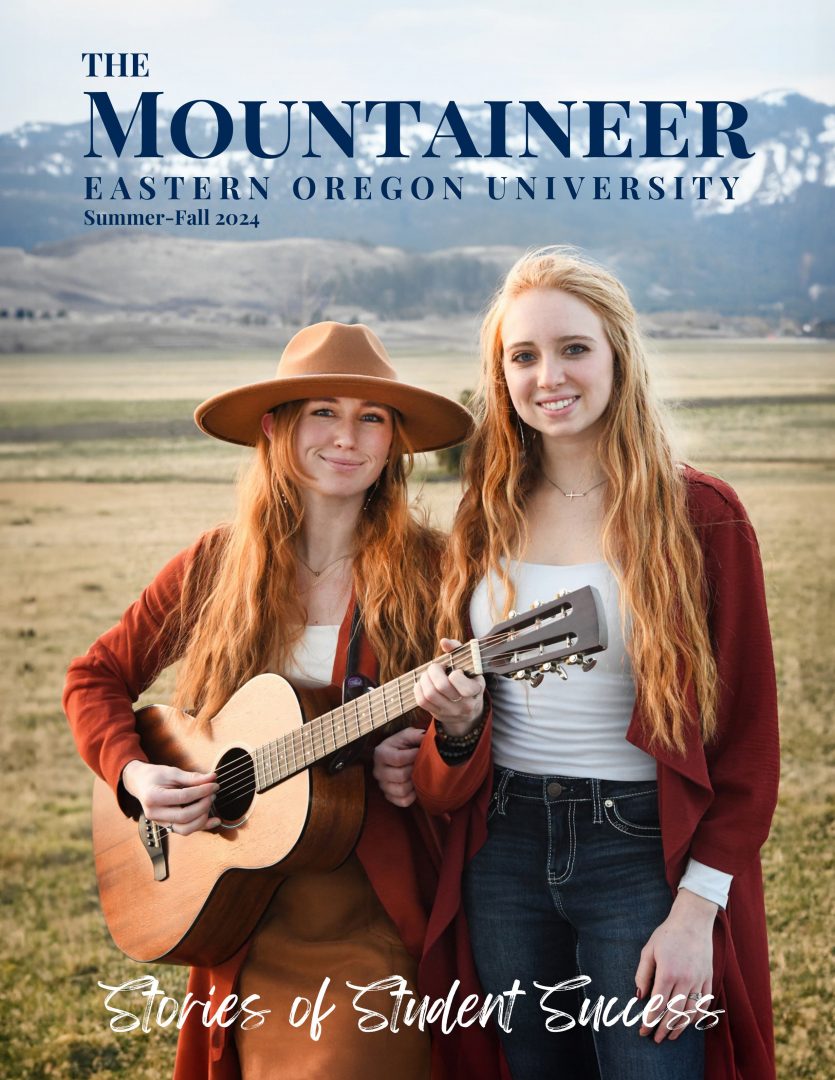The Ripple Effect of a Musical Legacy
Only recently has Duane Boyer started thinking about his legacy after five decades in the classroom.

After graduating from Eastern Oregon College cum laude in 1969 the Eastern Oregon University guitar and banjo instructor was hired in 1973 to teach music. Eastern Oregon State College would not change its name until 1997 when it became Eastern Oregon University. At that time the state of Oregon required education majors to learn to play an instrument.
Sitting in a nondescript office in Loso Hall on the EOU campus, with pegboard for walls, Boyer is surrounded by sheets of music and guitar cases. An analog clock ticks away above his head. Hanging to the left is a proclamation ceremoniously presented to Boyer during an EOU Board of Trustees meeting in 2022, celebrating a man who has dedicated his life to teaching music.
Boyer said he didn’t think about his footprint for a long time.
“I guess at this point, looking back,” Boyer said, “ it feels like I’ve thrown a big rock out into the water and the waves have rippled out in all directions.”
Boyer smiles broadly and appears modest about his life’s work. When encouraged, he admits he has created a musical community he could not have fathomed after 4,000 EOU students.
“I do feel a sense of accomplishment, and it is becoming more apparent as I meet more and more people I had as students, who express they still enjoy music and still play,” Boyer said. “It makes me feel like I wasn’t just here spinning my wheels.”

The Power of Music
Boyer said former students will occasionally reach out to him. In fact, he tells a story about a student who contacted him using social media. The student asked, “Are you the Duane who taught guitar at EOU?”
The student, who took guitar lessons the first year Boyer taught, said he had always wanted to thank him.
“I’ve wanted to thank you for years and years; you’ve given me the motivation to keep going,” the former student told him.
Every term a new wave of students comes through the building and Boyer said they are what keeps him going. He knows some students will set the instrument in the closet after the term, but his hope is that some will continue.
“To watch someone who is learning to play, to see the light come on as they develop the ability to play, is a great feeling,” Boyer said. “I thrive on that.”
Boyer said when he first started teaching he had no idea where it was going to lead.
“I’m still here because I enjoy it. I enjoy working with the students and I’m two or three years past legitimate retirement age, to say the least,” Boyer jokes.
Boyer believes in the power of music, and is not shy about saying music can help students with other stresses. He encourages students to pick up an instrument, let go of the tension and worry. Put simply by a man with decades of experience, “It cleanses the palate.”
Generational Ripple
One of Boyer’s most successful students is EOU alumni Jesse Jones, ‘05. Jones earned his masters degree at the University of Oregon, taught at Eastern for a year, and went to Cornell for his doctorate. Today, Jones is an Associate Professor of Composition and Director, Division of Contemporary Music at Oberlin Conservatory in Ohio.
The former Mountaineer has played music around the world.
“The thing about Duane is he has been a constant in my life and that is rare,” Jones said. “He is incredibly generous with his time.”
Jones said Boyer got him interested in music while he was still in high school. Jones, who had broken his arm, asked Boyer to help him learn a few chords, after watching Boyer tutor a friend.
Jones called Boyer his biggest champion. The former student of Boyer’s said as he gets older he appreciates his former instructor for more than just music.
“Since I am teaching, a lot of him goes to the next generation, a sort of generational ripple,” Jones said.
King of Loso
Boyer jokes, “I thought maybe they would make me king or something if I stayed long enough.” “Looking back over 50 years, I want to be remembered for what kind of appreciation for music I developed in [the students]. In particular what it has meant to them, what it has meant to others, from teachers to performers.”
